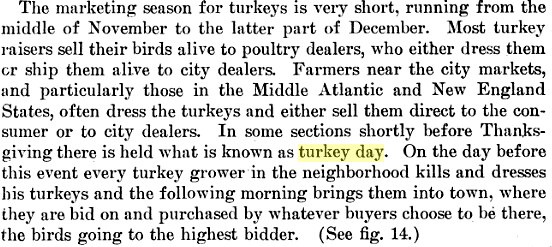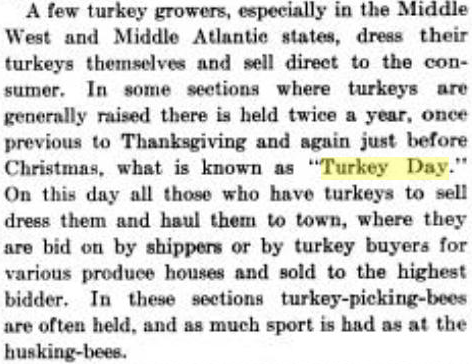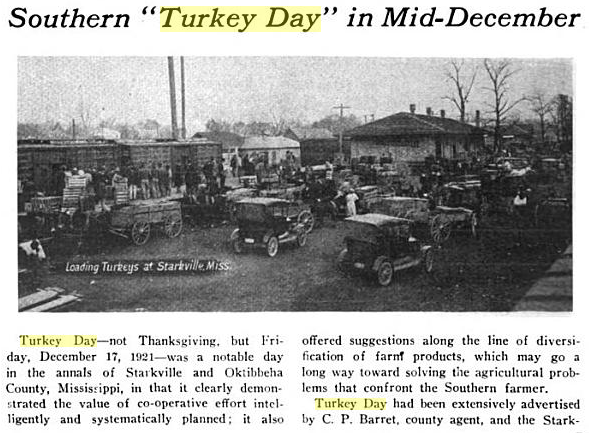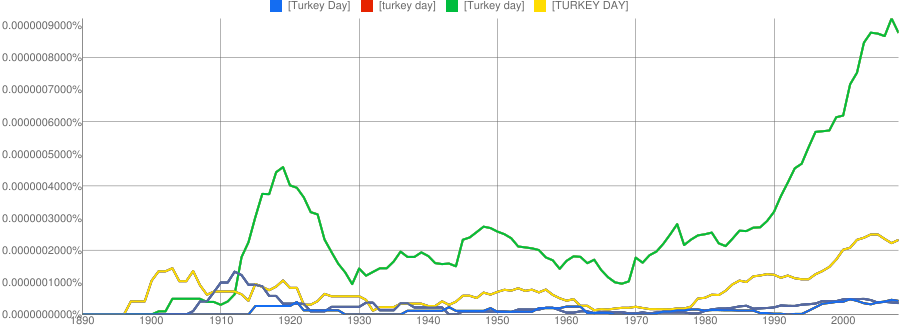The peak in the Ngram graph of 'turkey day' frequency of occurrence between approximately 1912 and 1927 may be explained by there being at that time two "turkey days". These were the days before Thanksgiving and before Christmas when dressed turkeys were brought to market. This use is distinct from the use with reference to Thanksgiving Day:

(From Laws Relating to Fur-bearing Animals, 1916.)

(From Butchers' Advocate: Dressed Poultry and the Food Merchant, Volume 64, 1917.)

(From Illinois Central Magazine, Volume 10, Issues 7-12, 1922.)
As can be seen from the clippings, these commercial 'Turkey Days' were a celebration in their own right (much like the contemporary 'Black Friday') and, in addition, as a commercial event, generated much publicity in the periodicals of the time. Those periodicals, in turn, were collected as part of the Google Books corpus, and so explain the prominence of the mentions in the Ngram graph you generated.
By my conservative estimate, 17 of the total 28 hits between Jan. 1, 1917 and Dec. 31, 1922 reflect use of the term 'turkey day' with reference to one or another of the commercial 'turkey days'; 6 of the other hits have no relation to Thanksgiving Day itself. So only 5 of the 28 hits might have reference to Thanksgiving Day. In some cases I was unable to determine what day or day type (commerical sales day or holiday) was referenced.




